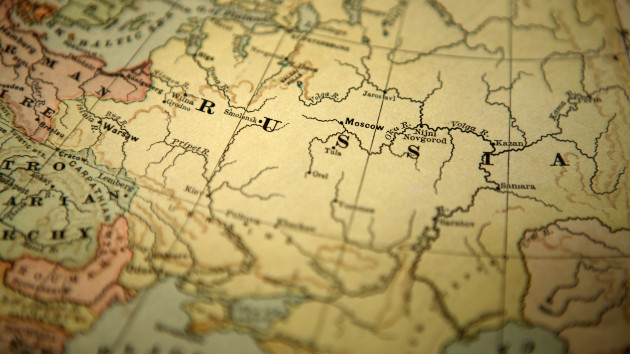Jack’s Books: A War Within A War

Not far from the setting for the modern day war between Ukraine and Russia is the city of Volgograd, renamed from “Stalingrad” some 60 years ago.
The Battle of Stalingrad, sometimes referred to a a “siege”, is one of the signature battles of World War II. But as historian William Craig illustrates in his “Enemy at The Gates: The Battle for Stalingrad (1973), it could qualify as its own war. Consider: Russia lost nearly 800,000 men defending a city Stalin originally wasn’t prepared to defend; Hitler lost an entire army trying to take a city that instead killed his lightning advance on the Eastern Front of the war. In per capita terms, it was the deadliest battle in the history of the Italian military (then allied with Nazi Germany). Hitler squandered elite Italian Alpine commandos in a battle waged on the flat tabletop of the steppe. In a city of some 400,000 at the war’s start, by 1947, there were fewer than 1500 people living there who had lived there six years earlier. Home to some of the most stirring memorials in any war, Stalingrad/Volgograd is today a reminder of how insanely disproportionate war can be.
Then there are the what-if’s: if Stalin loses, he possibly is toppled from power, which alters the trajectory of 20th century. If Hitler rolls through his conquest of Russia instead of being stuck there, does the Normandy landing still succeed, or is the European war stalemated or settled inconclusively. Stalingrad is a hinge moment.
Craig’s remarkable and readable history is the result of years of meticulous tracking-down and interviewing survivors from all sides and experiences. Truly one of the best histories from WW2, and worth tracking down on a used-book site, or library, if you can.
Also this month:
“The Main” by Trevanian (1976) A classic and unique police procedural set in the Montreal underworld, but also a searing and poignant story of love and friendship.
“World Gone By” by Dennis Lehane (2015) Another of his gentleman mobster Joe Coughlin stories, but I have to say, his least successful one, at least for me. Lehane is a brilliant storyteller and paints characters and places vividly—but I wasn’t buying his cast or his plot here: now a widower, Joe is raising his son, but is haunted by a “ghost boy”. Meanwhile, he’s racing the clock to prevent a hit ordered on himself.
“A Rumor of War” by Philip Caputo (1977) One of the most acclaimed memoirs of the Vietnam war. Caputo is a deep-thinking, highly-observant young Marine caught up in enlisting for and serving in the Vietnam War, which he eventually turns against. This is a masterpiece of the individual’s experience—he’s not writing a history of the conflict, but a history of himself in it. Very moving and hard to put down.
“Stamboul Train” by Graham Greene (1932) A lot of great thrillers have been set in part or in full aboard a train. Here’s one of the very best, and earliest. Graham’s colorful cast of characters are on a journey from Ostend to Istanbul (once known as Stamboul). Graham take chances for 1932: a main character is openly lesbian. By his own admission, after some failures, he was candidly trying to write a bestseller which could be made into a movie. He did, and it was.
“Don’t Ask” by Donald Westlake (1993) From the fast-paced and funny “Dortmunder” series. John and his band of good-hearted crooks get involved in a Balkan war over a highly-questionable religious relic. He has to steal it twice, and as always with Dortmunder and company, the thieves are the only characters you will be rooting for.
“The Assassin” by Stephen Coonts (2008) In the universe of sometimes-overlapping Coonts characters, CIA operative Tommy Carmellini is easily my favorite. He’s a hero, but not a superhero—he gets tired, cranky, doesn’t follow orders, in short, he’s real and relatable, but reliable. Here Tommy and his boss, Jake Grafton, have to find and figure out what a shadowy al Qaeda leader is planning next. And is the girl Tommy loves possibly the terrorist’s daughter?? They are “helped” by a group of wealthy industrialists who want to fund a private war on terrorism, but seem to be playing both sides.
“The Case of The Silent Partner” by Erle Stanley Gardner (1940) When this “Perry Mason” novel was adapted for one of the very first TV show episodes in ’57 (same title), it was, in my opinion, royally screwed up. Characters were combined or eliminated, and a very nice little plot was lost. So, read this book if you can still find it. A young woman fights to save her flower business, and her ne’er-do-well playboy husband, stock certificates are in devious hands, and a nightclub hostess is poisoned by chocolate creme candies sent to her anonymously. Plus, the main antagonist for Mason over the years, LAPD Lt. Tragg makes his first-ever appearance (nothing at all like his TV version, played by the great radio actor Ray Collins!). Now, tell me you don’t want to know what happens here.
As always, would love to hear your take on these, or your reading: [email protected]
You Might Also Like



